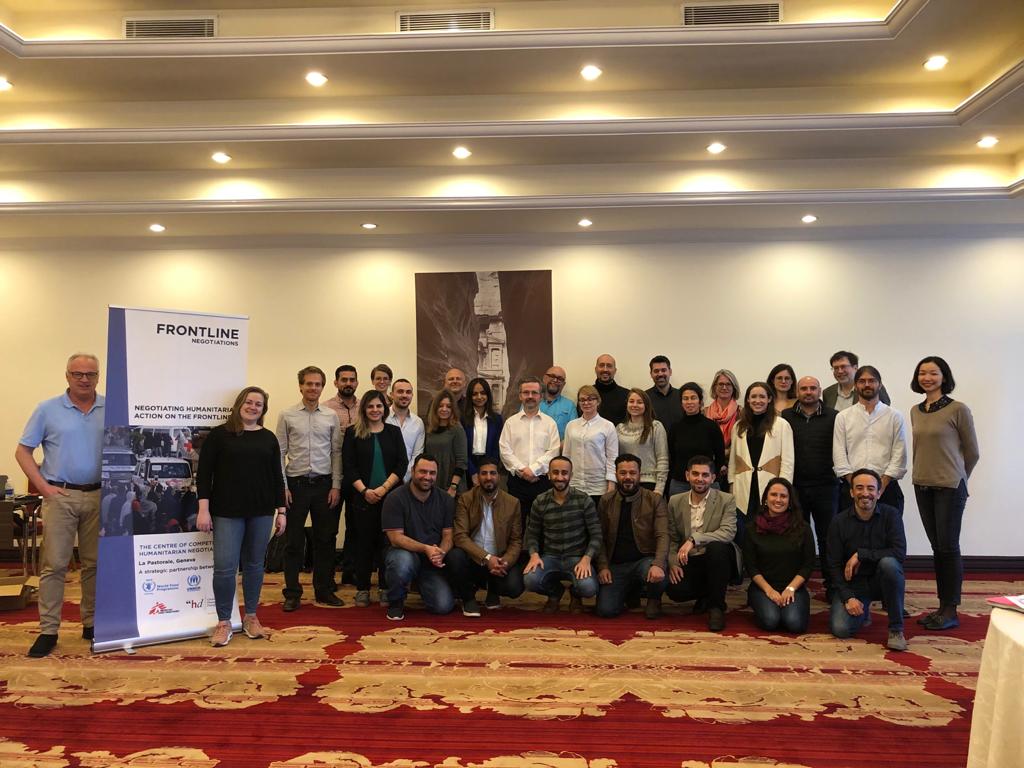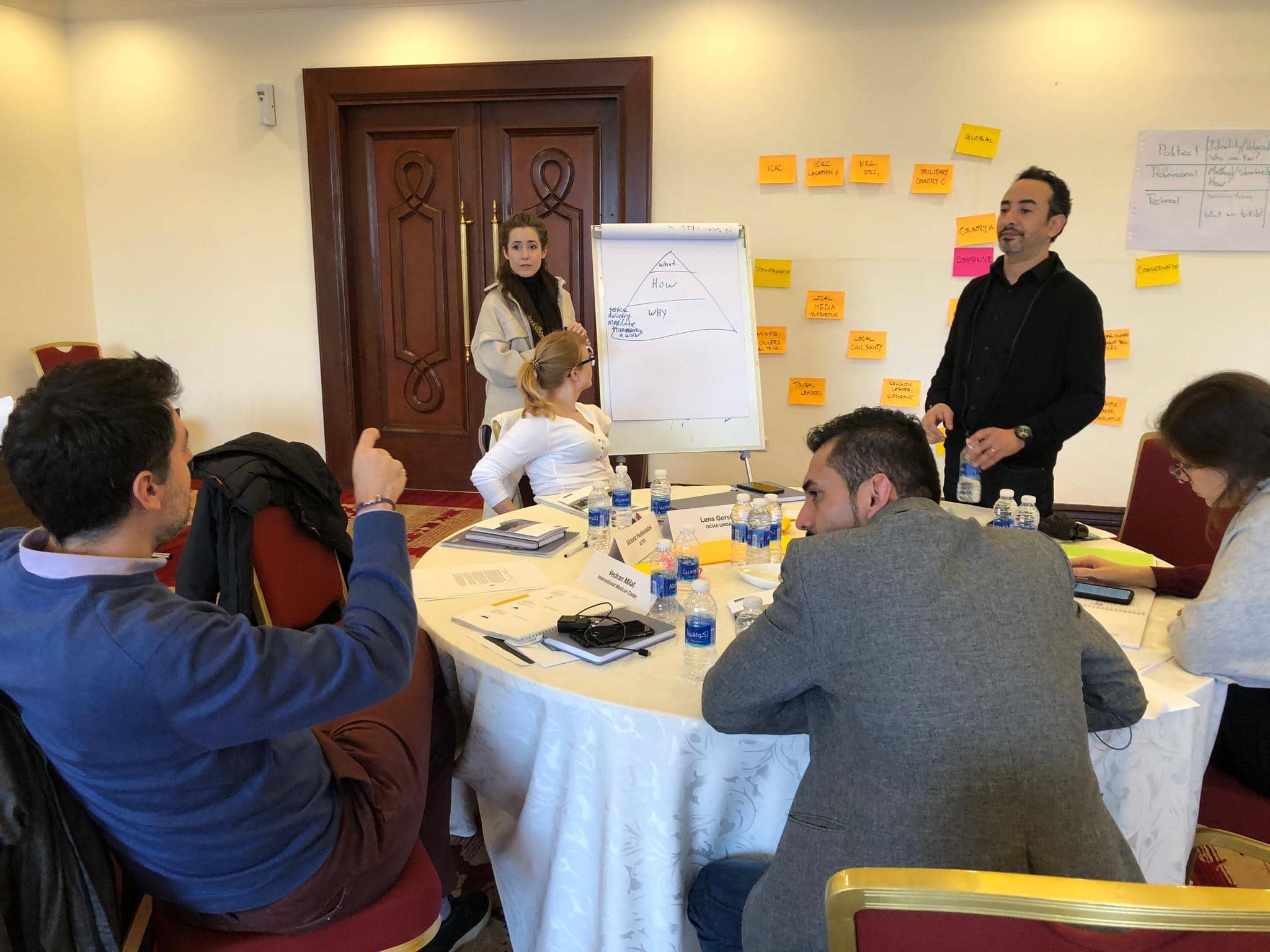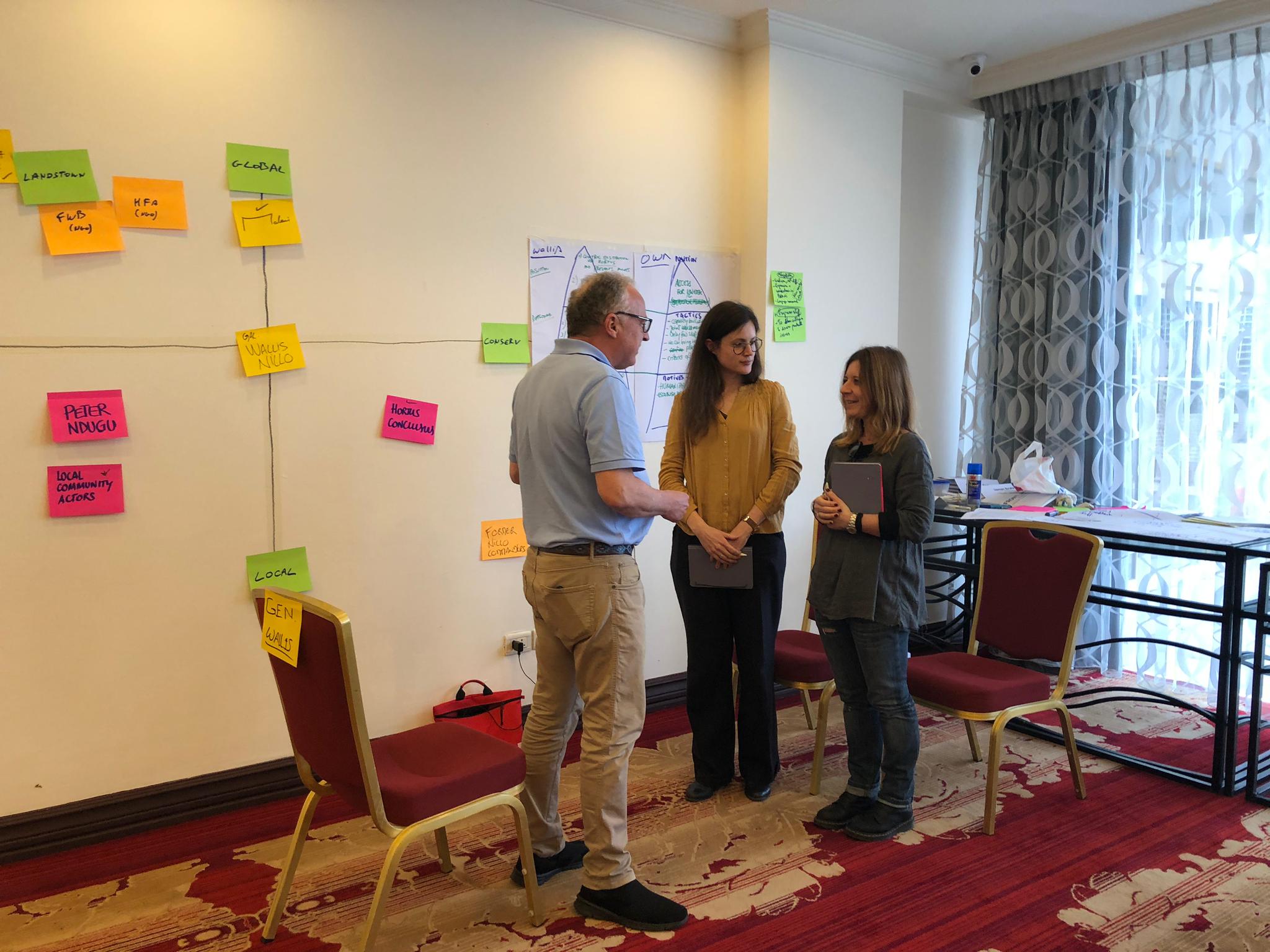
The latest batch of CCHN Peer Workshop on Humanitarian Negotiation in the Middle East. (Photo: Sofia Mueller/CCHN)
Before the COVID-19 measures were tightened, CCHN managed to organize a Peer Workshop on Humanitarian Negotiation in Amman, Jordan on 25-27 February 2020. It included 27 participants, a few of them working in the academic sector. This workshop took place after we had launched the new Training of Facilitators curriculum in two trainings at the end of January and the beginning of February.
Toufik Naili, Negotiation Support Specialist – Curriculum & Network, explained, “We organised the Peer Workshop in Amman to make sure we could have the participation of a range of national staff from the Region. The event was organized for humanitarian actors based in the Middle East. We had participants from the INALCO University for them to get familiar with the content of our Peer Workshop and to know better the challenges the humanitarian community is facing in terms of access. This was within the framework of collaboration between the CCHN and INALCO for a Summer University in the future.”

Toufik Naili conducting table facilitation of Typology of Humanitarian Negotiation. (Photo: Sofia Mueller/CCHN)
Applying Different Negotiation Tools
Over three days, the participants were presented with all the negotiation tools and methods from the CCHN Field Manuals in different sessions. The participants had different preferences in the negotiation tools that they would like to apply in their daily work. For example, one participant mentioned that the Negotiation ‘Iceberg’ tool gave the opportunity to understand the underlying reasons and values of a counterpart’s position and how to act upon our observation and analysis. Some participants agreed while others preferred different tools.
“I was already expecting that this workshop would be 3 days about interesting negotiation tools. However, the variation of participants’ backgrounds and the sharing of stories and experiences made this workshop even more interesting. I found the Negotiation “Iceberg” interesting because I see that a lot of negotiations fail because the parties only focus on the positions of their counterpart without analyzing and understanding the reasoning and values behind these positions,” Fetnat Nakrour, ICRC Water and Habitat Engineer
“The workshop content met my expectations as I expected to be provided with tools for analysis of negotiation situations. I was positively surprised of the group size allowing to get to know peers having various backgrounds. I really like the tool session of Designing Scenarios and Identifying Bottom Lines. I think this tool will be helpful for me in identifying the shared space between me and my counterpart and assist in understanding the counterpart’s position. It is helpful to see how much space there is for the negotiation between the red lines and it illustrates very well the flexibility that every negotiation situation brings.” Elisabeth Meyer, External Relations and Project Officer, UNRWA

Playing roles of negotiators using the selected CCHN tools. (Photo: Sofia Mueller/CCHN)
Modifying the Negotiator Game
At the end of a Peer Workshop, we used to create a negotiation game where groups of participants could work together or separately on maintaining access to deliver assistance for a fictitious vulnerable population. However, we modified the game in this workshop to create a simulation where participants played roles while using specific CCHN negotiation tools when negotiating with their counterparts in the scenario.
Dariha Erketaeva, CCHN Project Manager – Research and Development explained, “By changing a bit the rules of the game, we wanted to create more connection in the application of the main content of the Peer Workshop. We gave each group a case and they had enough time to prepare simulations of their negotiation plans using the tools that we presented to them in different sessions. They used some of the key tools like the Negotiation Iceberg, the Stakeholder Mapping and the Typology of Negotiation.”
Presenting the Practical Aspects of the CCHN Case Studies
The participants of the workshop were also privileged to see how they can use and collaborate with their team when using the CCHN Online Case Studies. It is one of the CCHN Negotiation Resources which was launched during the first Community Assembly in Naivasha, Kenya last year. By using these case studies, frontline negotiators can have a concrete example of how negotiation can be planned and executed step-by-step and in an interactive way.
